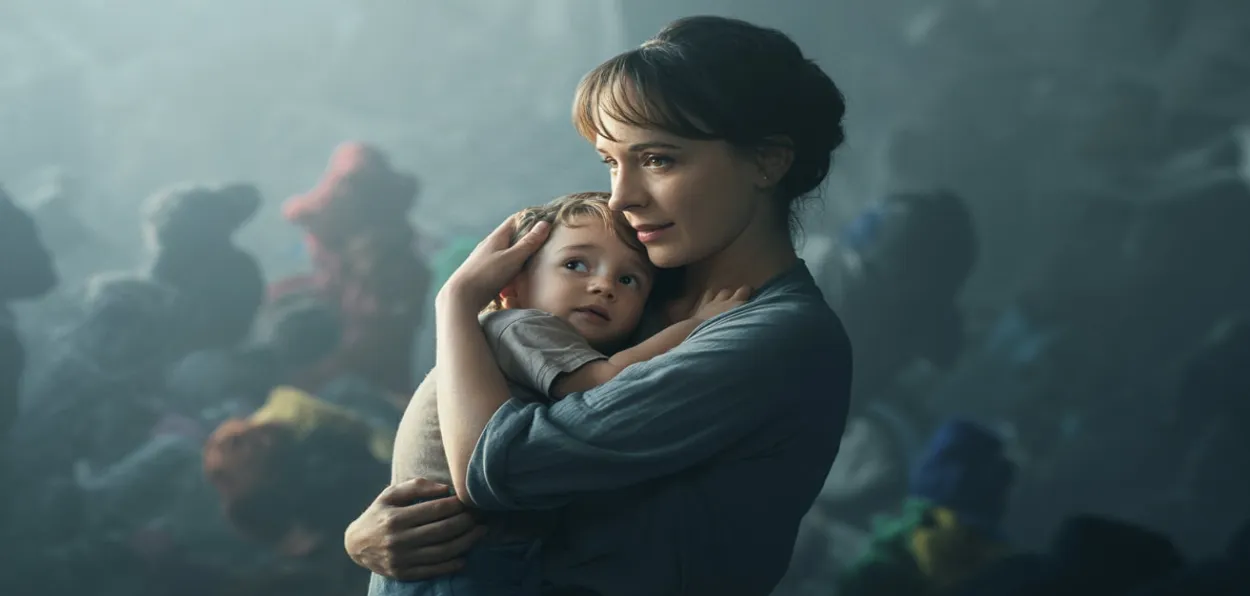
Sapna Vaid
Parenting can feel incredibly heavy. We carry so much of it on our shoulders -- the doubts, and pressure to get everything right that comes with it. When something feels off, we immediately turn inwards: Did I say the wrong thing? Am I too strict? Too lenient? And if our child pulls away or seems off, we either blame ourselves or, out of sheer confusion, blame them.
Modern Day Parenting -III
Let’s be honest—life feels like a constant race now. There’s barely time to sit still. We rush through mornings, through school runs, through meals. Even weekends feel packed with plans, errands, and activities. Everyone’s always on the go. And somewhere in all this hurrying, the little moments—like quietly chatting with our kids or just being in the same space without an agenda—start slipping away.
And then, there’s the comparison trap. Suddenly, it’s not just about how your child is doing; it’s how they’re doing compared to everyone else. You see pictures of grand birthday parties, hear stories of medals won, and sometimes, even your child’s school performance feels like it's being measured on a public scoreboard. Even parenting has started to feel like a competition. What school they go to, what classes they take, what behaviour strategies they use—it’s all up for silent judgment.
And here’s the irony—while we’re so busy trying to keep up with all this, we’re slowly losing sight of what matters. What our kids really need isn’t a perfectly curated childhood. They need room to breathe. They need to know they’re trusted. That it’s okay not to be perfect. That they’re loved even on the days they mess up.
But even beyond all that, the outside world has its challenges. It’s not easy raising children in a time when outdoor play has been replaced with pollution warnings and safety concerns. Parks feel unsafe or are disappearing altogether. So what do our kids do? They stay inside. Not always because they want to—but because they have nowhere else to go. And inside, they turn to screens.
Now, screens aren’t all bad. They entertain, and sometimes education. But let’s be real—they also expose our kids to a constant stream of “perfect” lives, filtered faces, unrealistic standards, and messages about success and beauty that even adults struggle with. They’re watching not just for fun—they’re comparing, absorbing, judging themselves silently. It’s not just screen time—it’s an identity crisis that starts young and runs deep.
Kids today are consuming way more than just videos and reels. They’re picking up expectations, trends, and opinions from people they’ve never even met. And while they may be constantly online, many of them are growing more distant at home. They don’t know how to say it, but they’re losing connection—with their families, and sometimes, with their own inner voice.
At the heart of all this is a lie we’ve all bought into: that more is better. More options, more exposure, more choices. But honestly? It’s exhausting them. The idea that they should already know what they want to become, how to get there, and who they are—it’s far too much to ask from kids who are still figuring out what makes them feel safe.
In trying to give them everything, we may be giving them too much—too many roads, too many expectations, and far too little time to just pause and reflect.
The truth is, we’re not just dealing with mood swings or screen addiction—we’re parenting in a noisy, fast, confusing world that often works against the things we’re trying to teach. And we can’t expect our children to be calm and grounded if everything around them is chaotic and overwhelming.
So what do we do?
We start by being honest—with ourselves and with each other. The exhaustion, the overwhelm, the second-guessing—it’s not just you. It’s all of us. And it doesn’t mean we’re failing. It means we’re human.
Then, maybe we start rewriting the definition of “doing well.” Instead of chasing perfection, maybe we chase peace. Instead of more activities, maybe we aim for more presence. Instead of talking about our kids’ achievements, maybe we ask how they’re feeling.
We can choose slower mornings, unstructured afternoons and evenings with no agenda. We can create a home where our children don’t feel like they have to be “on” all the time.
And slowly, maybe we start pushing back on the parts of this environment that aren’t serving them anyone.
We advocate for cleaner air, and safer parks. We take social media breaks. We stop comparing. We choose quiet over noise, real over polished, enough over endless.
Because parenting isn’t just about shaping our children; it’s also about shaping the world we’re leaving them.
And maybe it’s time we stop trying to fix our kids and start healing the space they’re growing up in.
ALSO READ: I don’t know why I’m angry, but I am
Maybe it’s time we stop just parenting our children, and start parenting the world we’re giving to them.
Concluded
